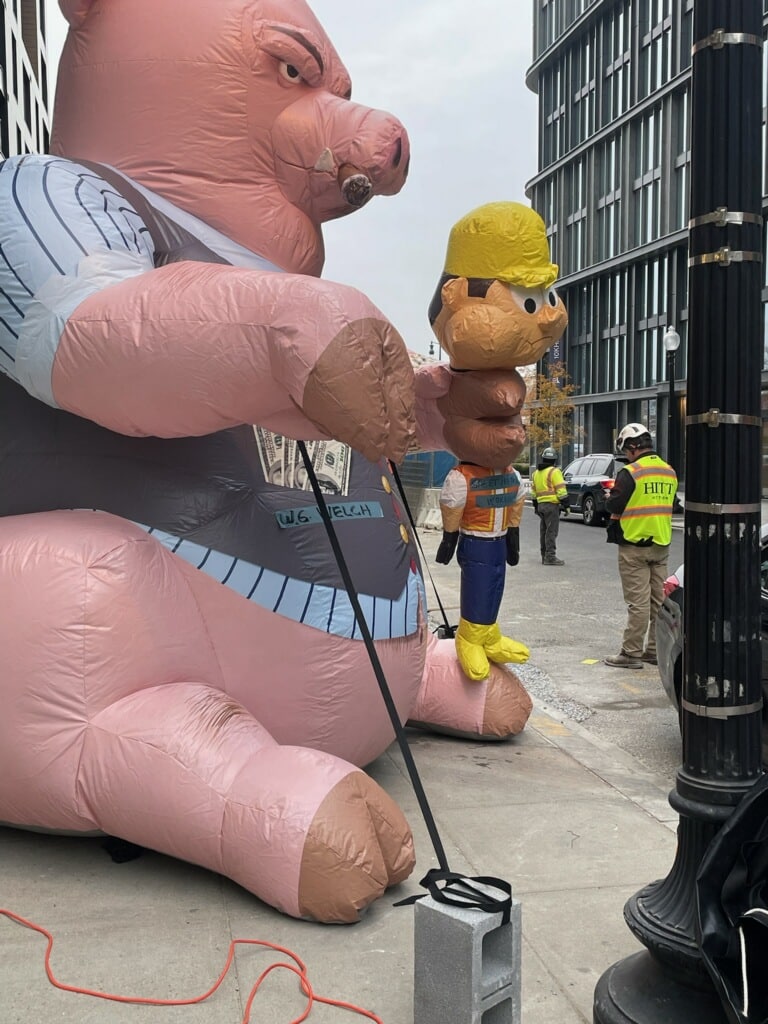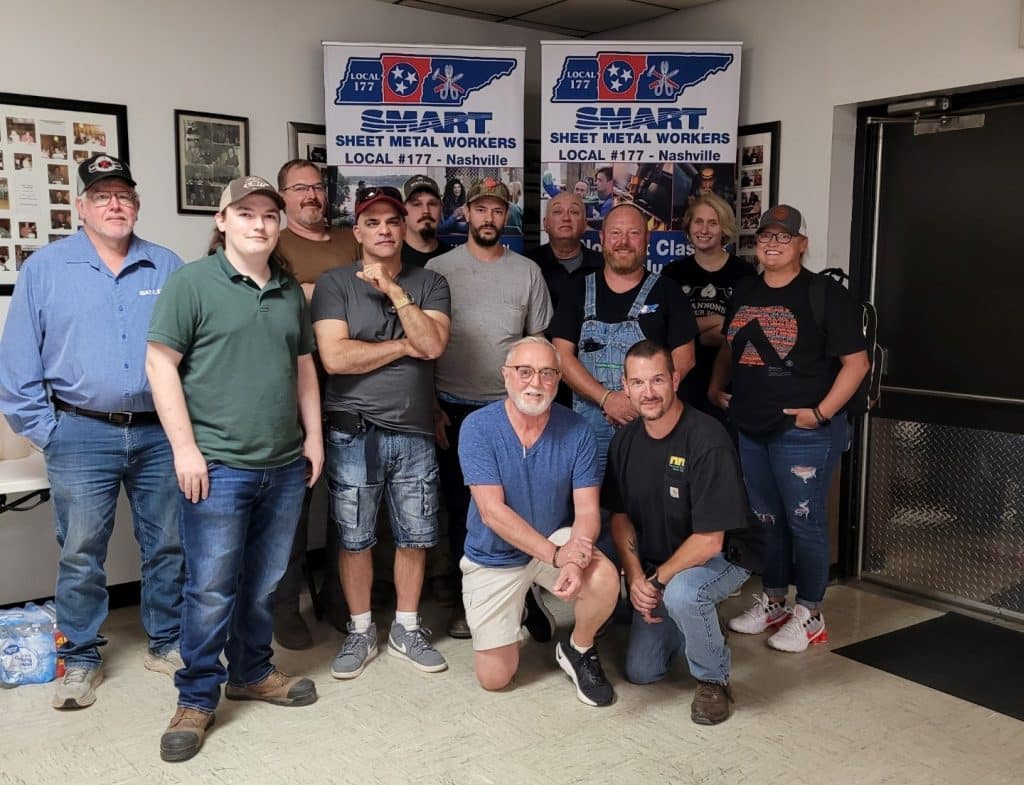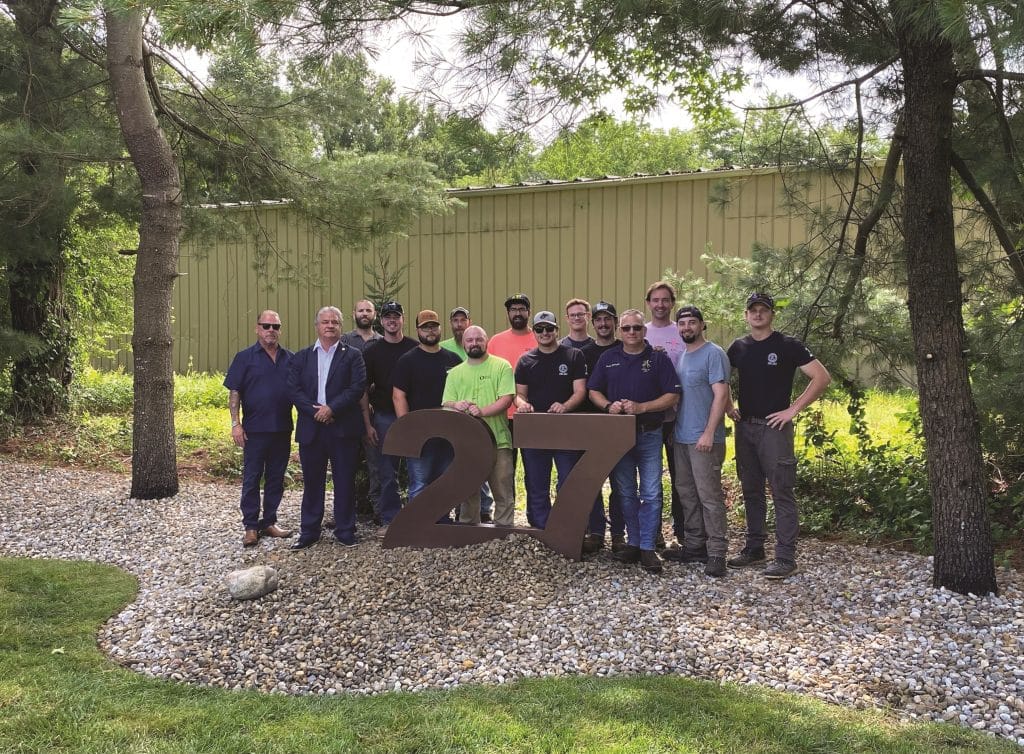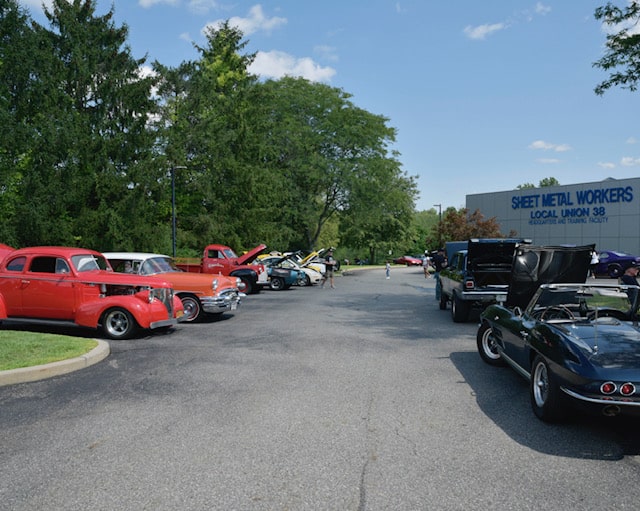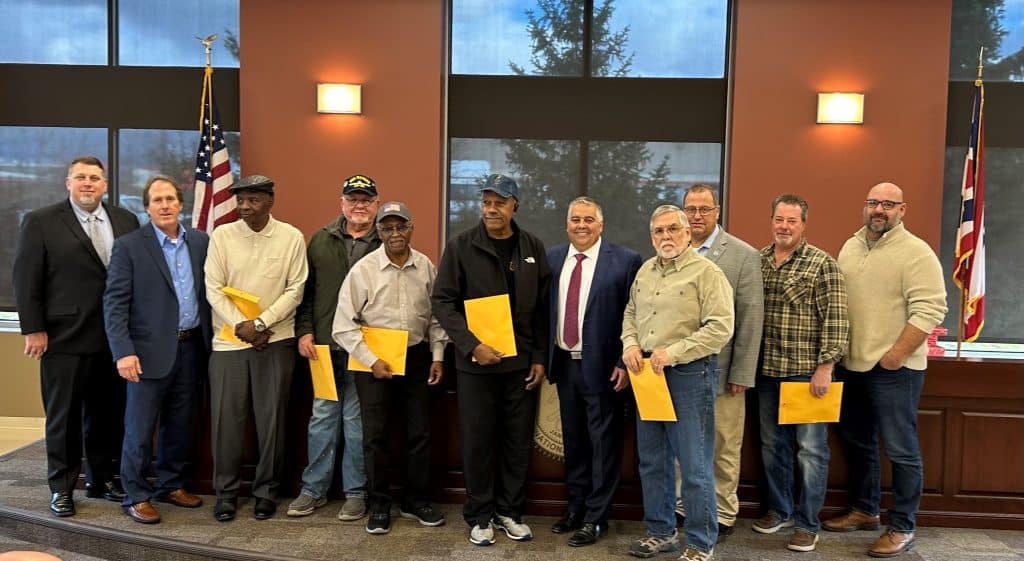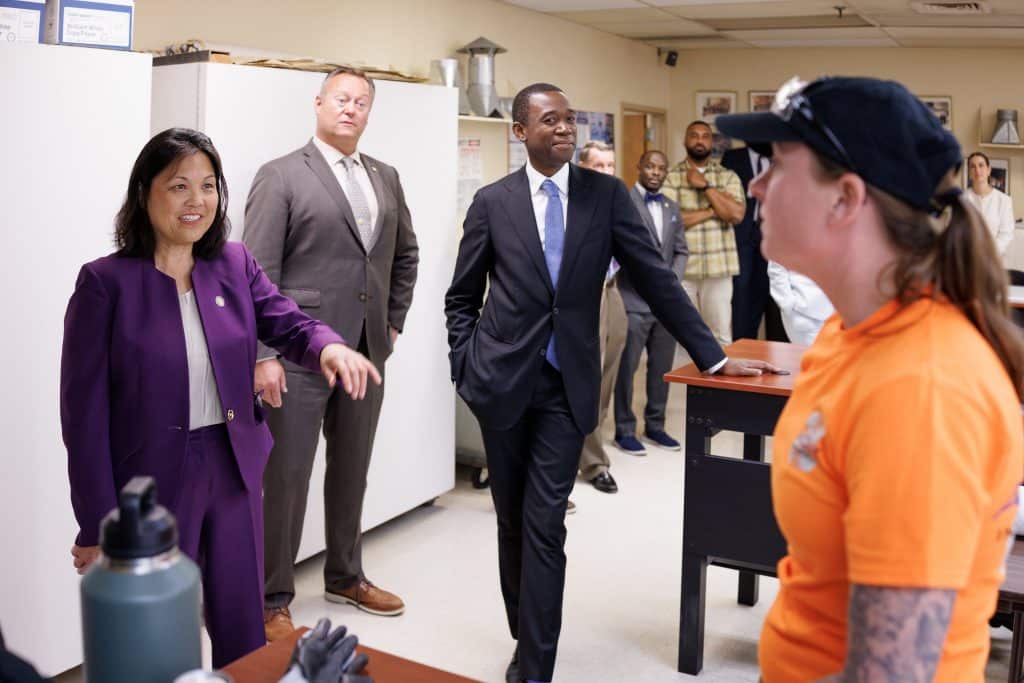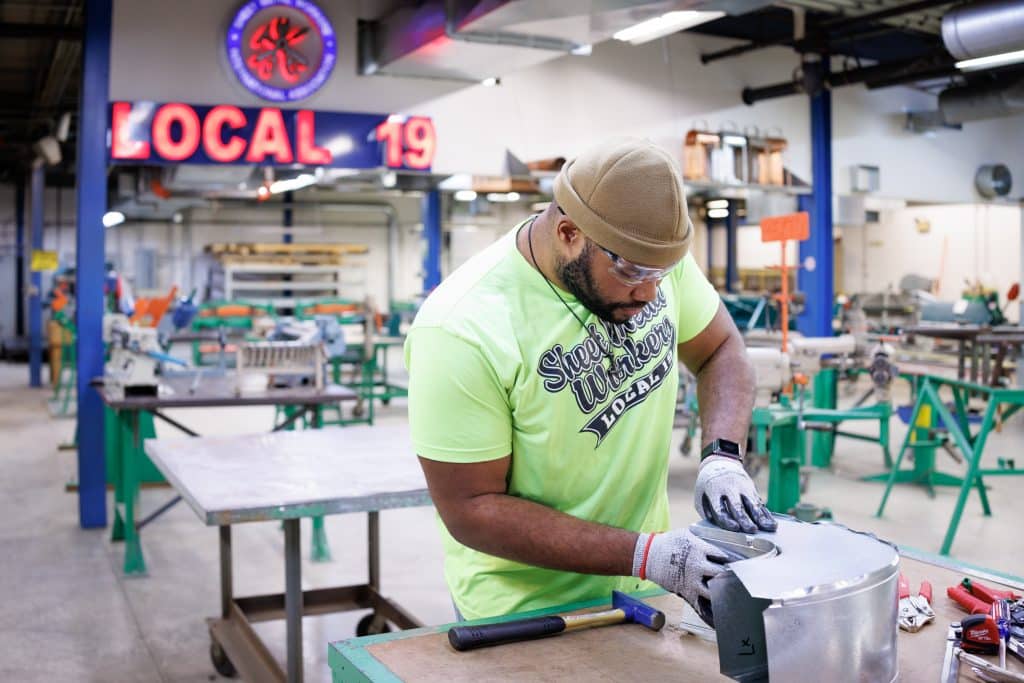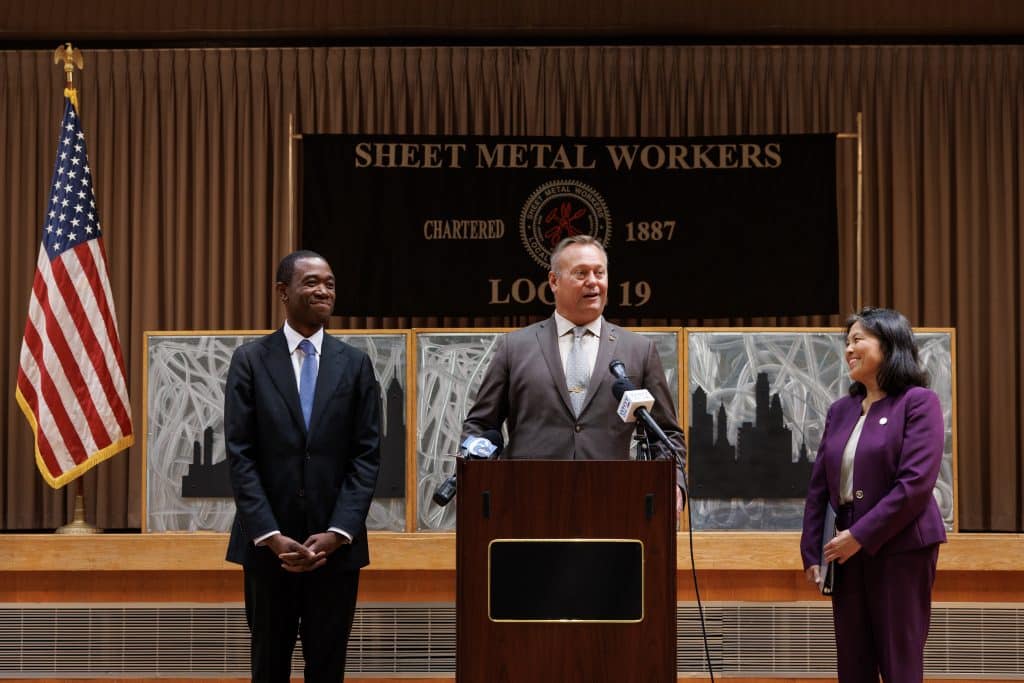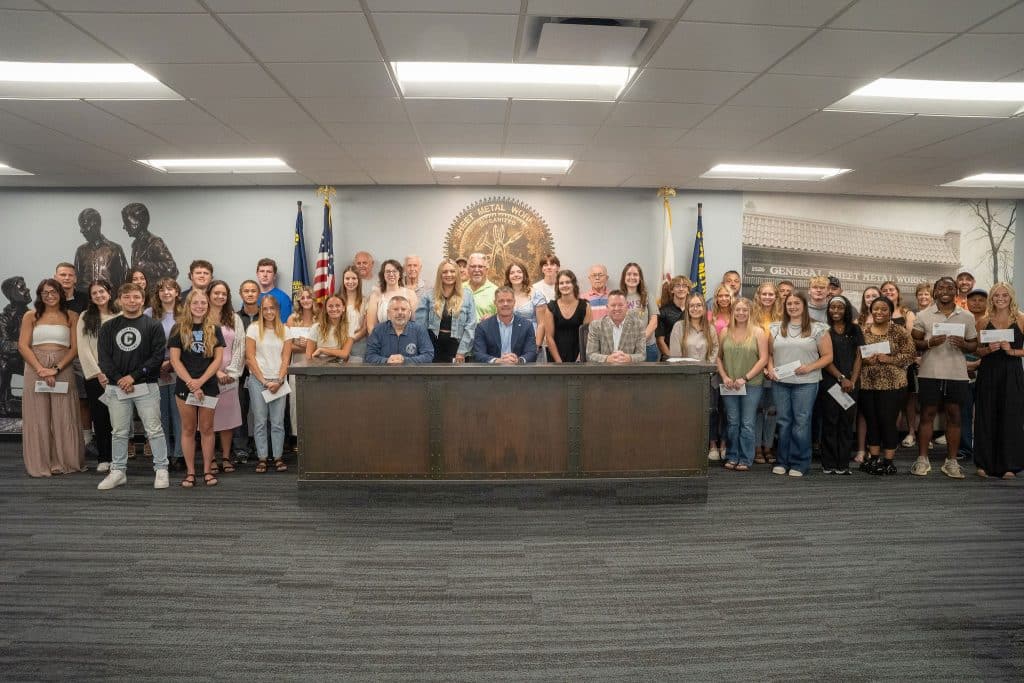Florida is a so-called “right-to-work” state, where unions consistently weather anti-worker attacks from corporate-beholden lawmakers seeking to weaken our collective bargaining power. But that hasn’t stopped SMART Local 435 (Jacksonville, Fla.) from organizing. And in June, Local 435 successfully signed PreCast Florida, a concrete manufacturing company that works alongside sheet metal shops, to a fabrication contract.
“All workers should have representation and benefits,” said Local 435 Business Manager Lance Fout when announcing the new signatory.
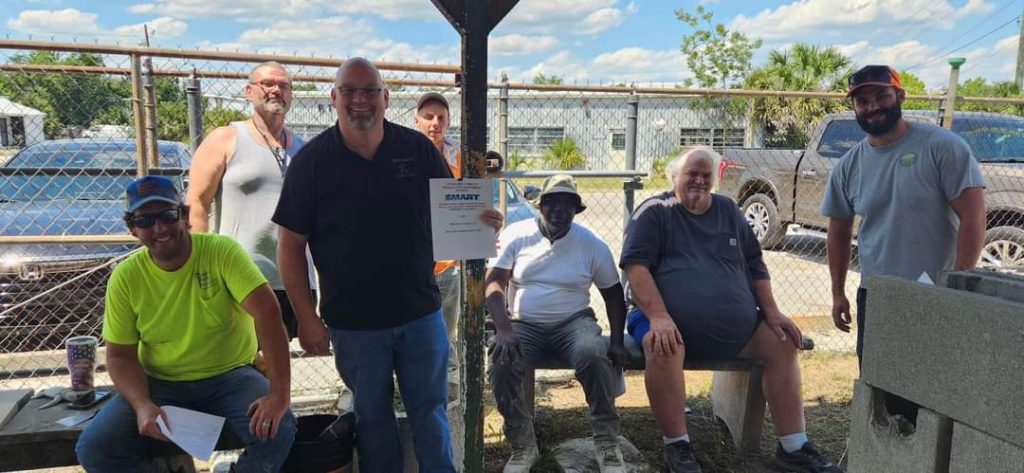
The signatory campaign at PreCast emerged from Local 435’s relationship with another one of its union contractors, Southern State Duct Masters, which signed with the local in 2022.
“Southern State has been very satisfied, and the company has been growing,” Fout explained. “Since they signed, they’ve got a new laser machine, a spiral machine, a new building; they’ve been thriving.”
Southern State owner Ashley Moore’s brother and sister-in-law purchased a concrete precast company shortly after, renaming it PreCast Florida. Despite the ownership and name change, PreCast had major problems with employee recruitment and retention, Fout explained, primarily due to a lack of benefits.
That’s when Moore suggested that PreCast contact Local 435.
“They weren’t sure what that would look like, but they were open to the idea,” Fout recalled.
Local 435 took the initiative, meeting with management and workers and explaining the benefits of working union. (The employees were shocked by what they stood to gain, Fout said.) From there, the process was simple: Local 435 wrote up a production agreement that included healthcare, a 401(k) plan, vacation and holiday pay, and the company gave all its employees a pay raise to cover the cost of union dues.
PreCast Florida officially signed with the local on June 1, and the union advantage is already making itself felt for workers at the shop.
“They’re ready to start making doctor’s appointments, I know that,” Fout said.
Local 435’s newest production members manufacture concrete light poles, picnic tables, construction castings and ornamental structures, displaying the same craftsmanship and artistry as their brothers and sisters working directly with sheet metal. Moreover, Fout said, the Local 435 members at Southern State Duct Masters are fabricating some of the metal forms that PreCast workers will use for their concrete molds, creating more work hours for members at both shops.
“It’s slightly outside the normal scope of work, but we’ve got a good relationship with the employer, a strong contract, and the employees are happy,” he concluded.
